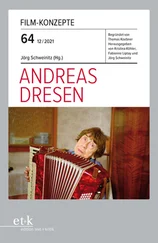Andrea Dworkin - Right-wing Women
Здесь есть возможность читать онлайн «Andrea Dworkin - Right-wing Women» весь текст электронной книги совершенно бесплатно (целиком полную версию без сокращений). В некоторых случаях можно слушать аудио, скачать через торрент в формате fb2 и присутствует краткое содержание. Жанр: Старинная литература, на английском языке. Описание произведения, (предисловие) а так же отзывы посетителей доступны на портале библиотеки ЛибКат.
- Название:Right-wing Women
- Автор:
- Жанр:
- Год:неизвестен
- ISBN:нет данных
- Рейтинг книги:4 / 5. Голосов: 2
-
Избранное:Добавить в избранное
- Отзывы:
-
Ваша оценка:
- 80
- 1
- 2
- 3
- 4
- 5
Right-wing Women: краткое содержание, описание и аннотация
Предлагаем к чтению аннотацию, описание, краткое содержание или предисловие (зависит от того, что написал сам автор книги «Right-wing Women»). Если вы не нашли необходимую информацию о книге — напишите в комментариях, мы постараемся отыскать её.
Right-wing Women — читать онлайн бесплатно полную книгу (весь текст) целиком
Ниже представлен текст книги, разбитый по страницам. Система сохранения места последней прочитанной страницы, позволяет с удобством читать онлайн бесплатно книгу «Right-wing Women», без необходимости каждый раз заново искать на чём Вы остановились. Поставьте закладку, и сможете в любой момент перейти на страницу, на которой закончили чтение.
Интервал:
Закладка:
tion in a world that consists fundamentally of two rules that by
their very nature prohibit the invention of values, identity, will,
desire: be fucked, reproduce. Men have constructed female sexuality and in so doing have annihilated the chance for sexual intelligence in women. Sexual intelligence cannot live in the shallow, predestined sexuality men have counterfeited for women.
*
I respect and honor the needy woman who, to
procure food for herself and child, sells her body to
some stranger for the necessary money; but for that
legal virtue which sells itself for a lifetime for a
home, with an abhorrence of the purchaser, and
which at the same time says to the former, “I
am holier than thou, ” I have only the supremest
contempt.
Victoria Woodhull, 1874
The argument between wives and whores is an old one; each one
thinking that whatever she is, at least she is not the other. And
there is no doubt that the wife envies the whore—or Marabel Morgan’s ladies would not be wrapping themselves in Saran Wrap or wearing black boots with lacy neon nighties—and that the whore
envies the domesticity of the wife—especially her physical sheltering and her relative sexual privacy. Both categories of women—
specious as the categories finally turn out to be—need what men
have to give: they need the material solicitude of men, not their
cocks but their money. The cock is the inevitable precondition;
without it there is no man, no money, no shelter, no protection.
With it there may not be much, but women prefer men to silence,
exile, to being pariahs, to being lone refugees, to being outcasts:
defenseless. Victoria Woodhull—the first woman stockbroker on
Wall Street, the first woman to run for president of the United
States (1870), the publisher of the first translation of the Communist


M anifesto in the United States (1871), the first person ever arrested
under the notoriously repressive Comstock Law (1872)*—crusaded
against the material dependency of women on men because she
knew that anyone who bartered her body bartered her human dignity. She hated the hypocrisy of married women; she hated the condition of prostitution, which degraded both wives and whores;
and especially she hated the men who profited sexually and economically from marriage:
It’s a sharp trick played by men upon women, by which
they acquire the legal right to debauch them without cost, and
to make it unnecessary for them to visit professional prostitutes, whose sexual services can only be obtained for money.
Now, isn’t this true? Men know it is . 13
Woodhull did not romanticize prostitution; she did not advocate
it as freedom from marriage or freedom in itself or sexual freedom.
Prostitution, she made clear, was for money, not for fun; it was
survival, not pleasure. Woodhull’s passion was sexual freedom, and
she knew that the prostitution and rape of women were antithetical
to it. She was a mass organizer, and the masses of women were
married, sexually subordinated to men in marriage. At a time
when feminists did not analyze sex directly or articulate ideas explicitly antagonistic to sex as practiced, Woodhull exposed marital rape and compulsory intercourse as the purpose, meaning, and
method of marriage:
Of all the horrid brutalities of this age, I know of none so
horrid as those that are sanctioned and defended by marriage.
* Woodhull wrote an expose of Henry Ward Beecher’s adulterous affair
with Elizabeth Tilton, the wife of his best friend. Beecher was an eminent
minister. His hypocrisy was the main issue for Woodhull. The expose was
published by Woodhull in her own paper, Woodhull and Clafin's Weekly.
She was arrested, as was her sister and co-publisher, Tennessee Clafin, for
sending obscene literature through the mails. She was imprisoned for four
weeks without trial.


Night after night there are thousands of rapes committed, under cover of this accursed license; and millions—yes, I say it boldly, knowing whereof I speak—millions of poor, heartbroken, suffering wives are compelled to minister to the lechery of insatiable husbands, when every instinct of body and sentiment of soul revolts in loathing and disgust. All married
persons know this is truth, although they may feign to shut
their eyes and ears to the horrid thing, and pretend to believe
it is not. The world has got to be startled from this pretense
into realizing that there is nothing else now existing among
pretendedly enlightened nations, except marriage, that invests
men with the right to debauch women, sexually, against their
wills. Yet marriage is held to be synonymous with morality! I
say, eternal damnation sink such m orality! 14
Wives were the majority, whores the minority, prostitution the
condition of each, rape the underbelly of prostitution. Woodhull’s
aggressive repudiation of the good woman/bad woman syndrome
(with which women, then as now, were so very comfortable), her
relentless attacks on the hypocrisy of the “good woman, ” and her
rude refusal to call the sufferance of rape “virtue” had one purpose:
to unite women in a common perception of their common condition. Selling themselves was women’s desperate, necessary, unforgivable crime; not acknowledging the sale divided women and obscured how and why women were used sexually by men; marriage, women’s only refuge, was the place of mass rape. Woodhull proclaimed herself a “Free Lover, ” by which she meant that she
could not be bought, not in marriage, not in prostitution as commonly understood. In telling married women that they had indeed sold their sex for money, she was telling them that they had bartered away more than the prostitute ever could: all privacy, all economic independence, all legal individuality, every shred of control over their bodies in sex and in reproduction both.
Woodhull herself was widely regarded as a whore because she
proclaimed herself sexually self-determining, sexually active; she


spit in the face of the sexual double standard. Called a prostitute
by a man at a public meeting, Woodhull responded: “A man questioning m y virtue! Have I any right as a woman to answer him? I hurl the intention back in your face, sir, and stand boldly before
you and this convention, and declare that I never had sexual intercourse with any man of whom I am ashamed to stand side by side before the world with the act. I am not ashamed of any act of m y
Читать дальшеИнтервал:
Закладка:
Похожие книги на «Right-wing Women»
Представляем Вашему вниманию похожие книги на «Right-wing Women» списком для выбора. Мы отобрали схожую по названию и смыслу литературу в надежде предоставить читателям больше вариантов отыскать новые, интересные, ещё непрочитанные произведения.
Обсуждение, отзывы о книге «Right-wing Women» и просто собственные мнения читателей. Оставьте ваши комментарии, напишите, что Вы думаете о произведении, его смысле или главных героях. Укажите что конкретно понравилось, а что нет, и почему Вы так считаете.












